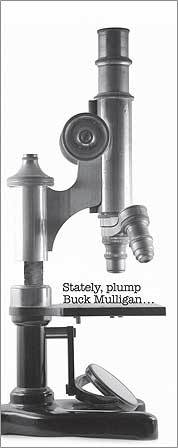Literary criticism could be one of our best tools for understanding the human condition. But first, it needs a radical change: embracing science
By Jonathan Gottschall
IT'S NOT SUCH a good time to be a literary scholar.
But over the last decade or so, more and more literary scholars have agreed that the field has become moribund, aimless, and increasingly irrelevant to the concerns not only of the "outside world," but also to the world inside the ivory tower. Class enrollments and funding are down, morale is sagging, huge numbers of PhDs can't find jobs, and books languish unpublished or unpurchased because almost no one, not even other literary scholars, wants to read them.
The latest author to take the flagging pulse of the field is Yale's William Deresiewicz. Writing recently in The Nation, he described a discipline suffering "an epochal loss of confidence" and "losing its will to live." Deresiewicz's alarming conclusion: "The real story of academic literary criticism today is that the profession is, however slowly, dying."
Not every literary scholar is so pessimistic, but most would agree that the field's vital signs are bad, and that major changes will be needed to set things right.
Though the causes of the crisis are multiple and complex, I believe the dominant factor is easily identified: We literary scholars have mostly failed to generate surer and firmer knowledge about the things we study. While most other fields gradually accumulate new and durable understanding about the world, the great minds of literary studies have, over the past few decades, chiefly produced theories and speculation with little relevance to anyone but the scholars themselves. So instead of steadily building a body of solid knowledge about literature, culture, and the human condition, the field wanders in continuous circles, bending with fashions and the pronouncements of its charismatic leaders.
I think there is a clear solution to this problem. Literary studies should become more like the sciences. Literature professors should apply science's research methods, its theories, its statistical tools, and its insistence on hypothesis and proof. Instead of philosophical despair about the possibility of knowledge, they should embrace science's spirit of intellectual optimism. If they do, literary studies can be transformed into a discipline in which real understanding of literature and the human experience builds up along with all of the words.
- more -









No comments:
Post a Comment